
Politics
16:18, 07-Feb-2018
Pence vows 'most aggressive ever' sanctions on DPRK
CGTN
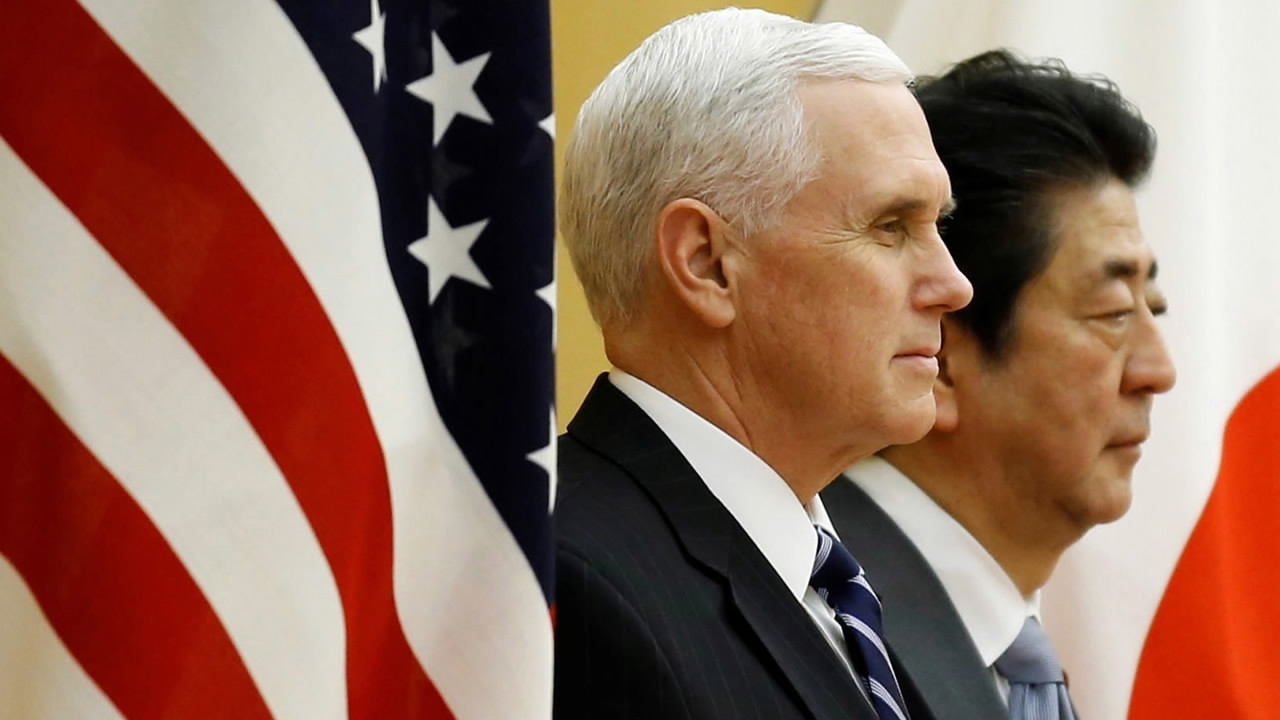
The United States is set to announce tough new sanctions against the Democratic People’s Republic of Korea (DPRK), Vice President Mike Pence said on Wednesday.
Pence, in Tokyo on his way to the Winter Olympics in the Republic of Korea (ROK), was speaking after talks with Japanese Prime Minister Shinzo Abe.
“The US will soon announce the toughest and most aggressive round of economic sanctions ever,” Pence said, adding that “unprecedented” diplomatic and economic pressure had already been placed on Pyongyang.

Twitter Screenshot
Twitter Screenshot
The US stands "shoulder to shoulder" with Japan and other allies as it seeks to denuclearize the DPRK, Pence added, amid speculation he could hold talks with a top Pyongyang official in the coming days.
"We will continue to stand shoulder to shoulder with the people of Japan, the people of South Korea and our allies and partners across the region until we achieve the global objective of the denuclearization of the Korean Peninsula," Pence said.
Pence to meet DPRK official?
Pence has not ruled out meeting senior DPRK officials in the ROK, but President Donald Trump has cast doubt on US negotiations with Pyongyang any time soon. The White House has also cautioned against reading too much into remarks Pence made en route to Japan.
"With regard to any interaction with the North Korean (DPRK) delegation, I have not requested a meeting, but we'll see what happens," Pence said before arriving in Tokyo.
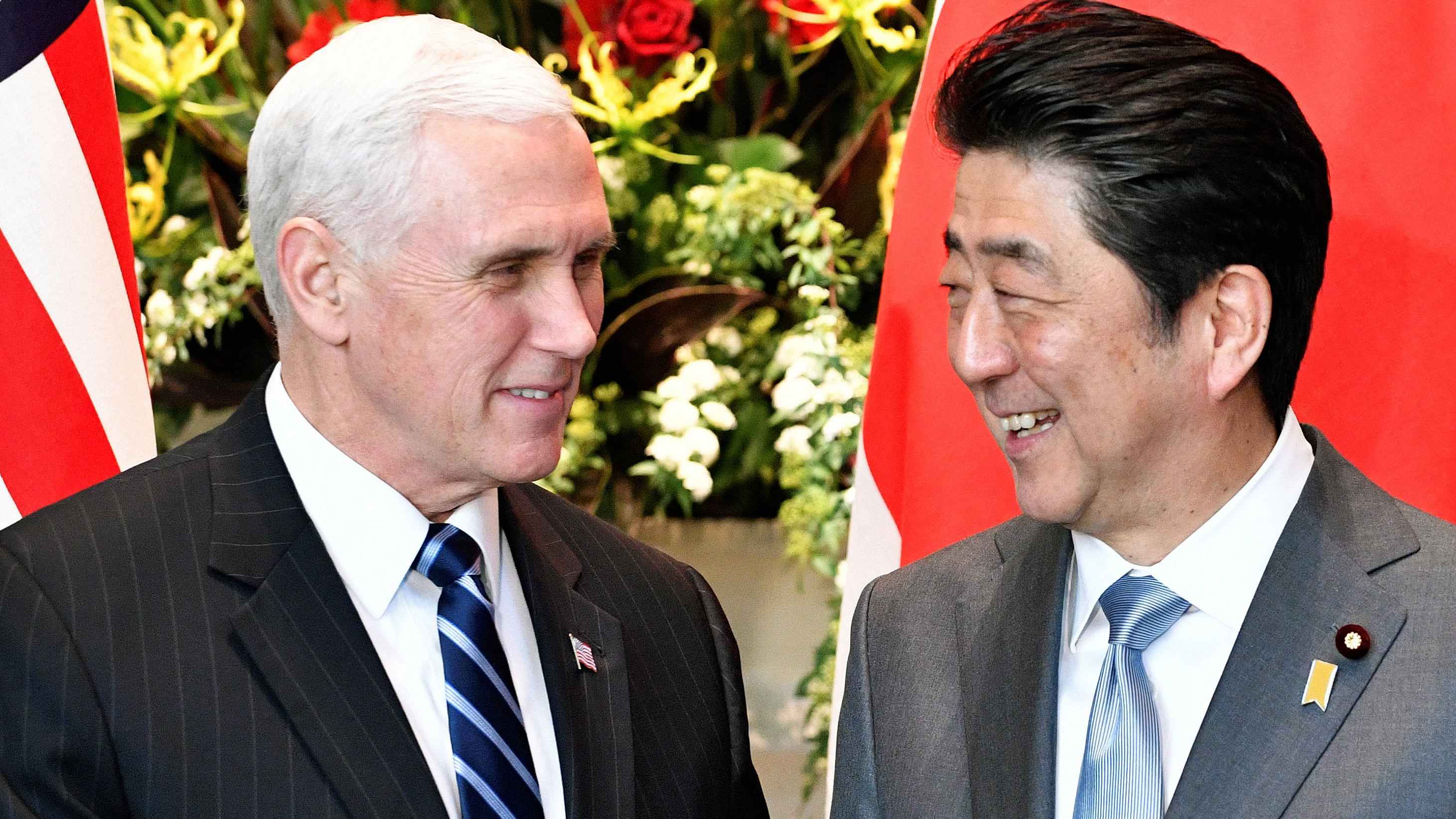
US Vice President Mike Pence meets with Japan's Prime Minister Shinzo Abe
at Abe's official residence in Tokyo, Japan, February 7, 2018. /Reuters Photo
US Vice President Mike Pence meets with Japan's Prime Minister Shinzo Abe at Abe's official residence in Tokyo, Japan, February 7, 2018. /Reuters Photo
The vice president’s trip to the ROK will coincide with a visit to the Games by DPRK's ceremonial leader, Kim Yong Nam, the most senior Pyongyang official to enter the South since the 1950-53 Korean War ended with a truce.
DPRK leader Kim Jong Un's younger sister, Kim Yo Jong, will join Kim Yong Nam at the opening ceremony of the Winter Olympics on Friday, Seoul's Unification Ministry said on Wednesday.
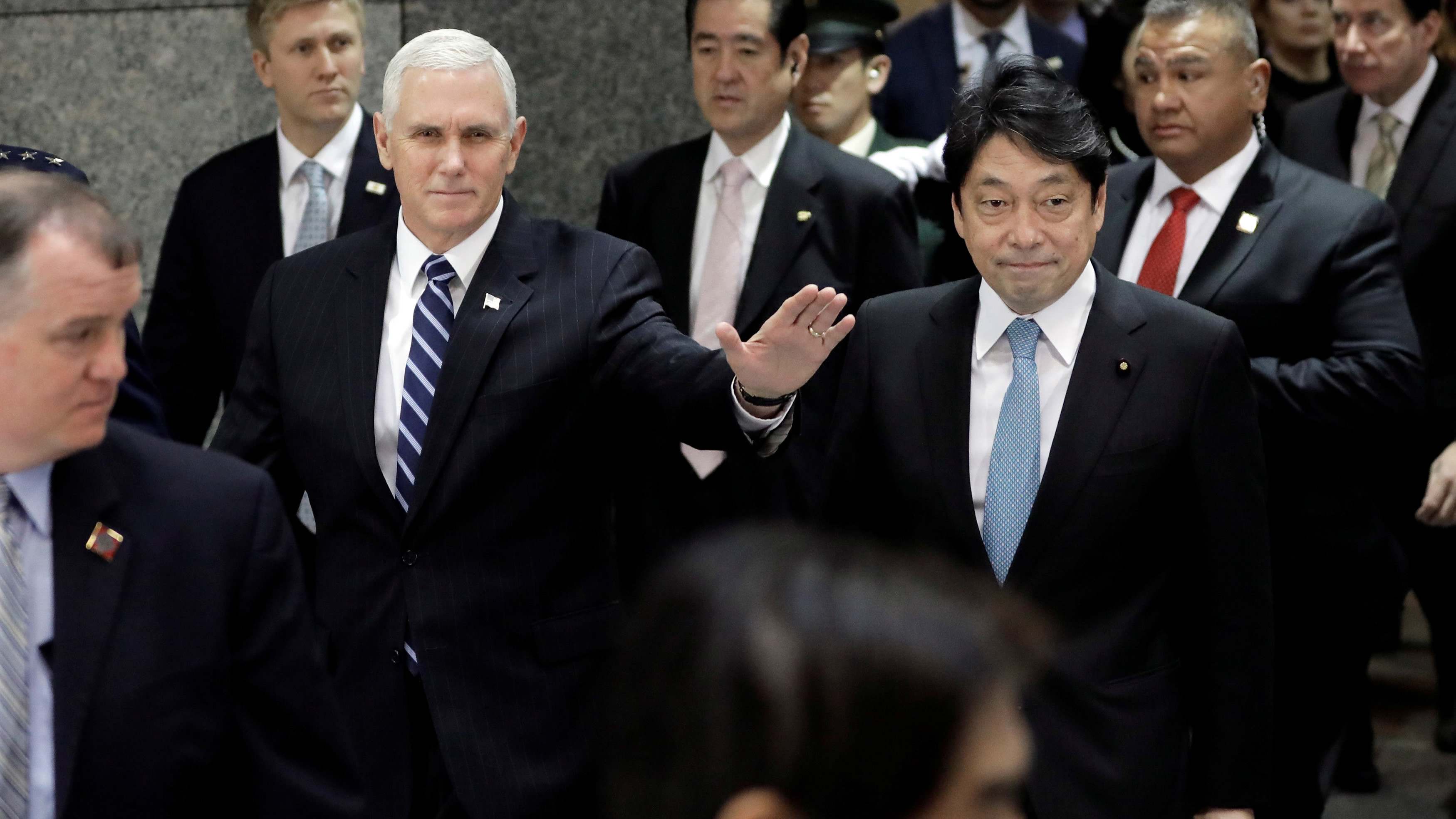
US Vice President Mike Pence leaves with Itsunori Onodera, Japan's
defense minister, after a meeting at the Ministry of Defense in Tokyo, Japan, February 7, 2018. /VCG Photo
US Vice President Mike Pence leaves with Itsunori Onodera, Japan's defense minister, after a meeting at the Ministry of Defense in Tokyo, Japan, February 7, 2018. /VCG Photo
Pence said his message to the DPRK was clear: Washington and its allies would keep pressing Pyongyang to give up its missile and nuclear programs.
"... My message – whatever the setting, whoever is present – will be the same. And that is that North Korea (DPRK) must once and for all abandon its nuclear weapons program and ballistic missile ambitions," he told reporters during the flight to Japan.
Japan warns of 'smile diplomacy'
Pence visited a Japanese Patriot PAC-3 missile battery, Japan's last line of defense against any possible DPRK missile strike, ahead of talks with Abe.
Pence watched the battery raised to a firing position and got a briefing before shaking hands with members of Japan’s Self-Defense Forces. He was accompanied by Japanese Defense Minister Itsunori Onodera and Japan's highest-ranking military officer, Admiral Katsutoshi Kawano.
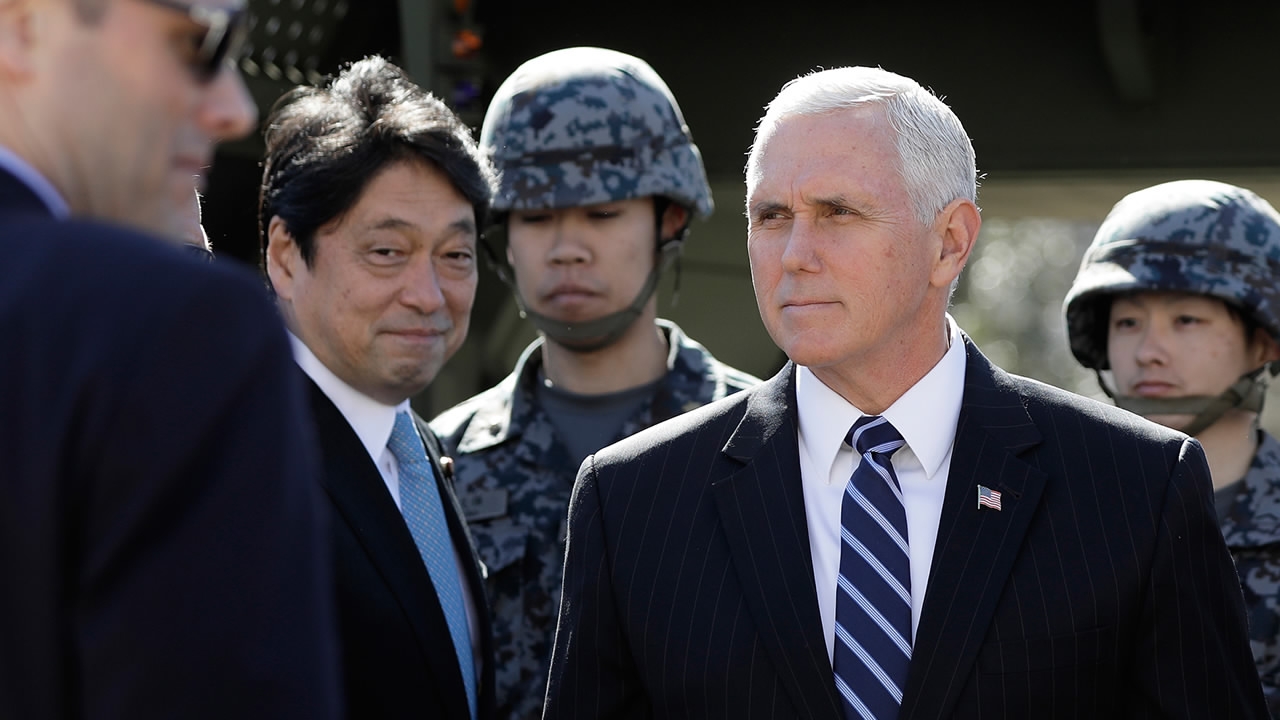
Abe's close aide, Chief Cabinet Secretary Yoshihide Suga, reiterated Japan's tough stance. "We must not be fooled by North Korea's (DPRK’s) 'smile diplomacy,'" Suga said.
The DPRK test-fired ballistic missiles over Japan last year, as well as a new type of intercontinental ballistic missile that climbed to an altitude of more than 4,000 km before splashing into the sea within Japan's exclusive economic zone.
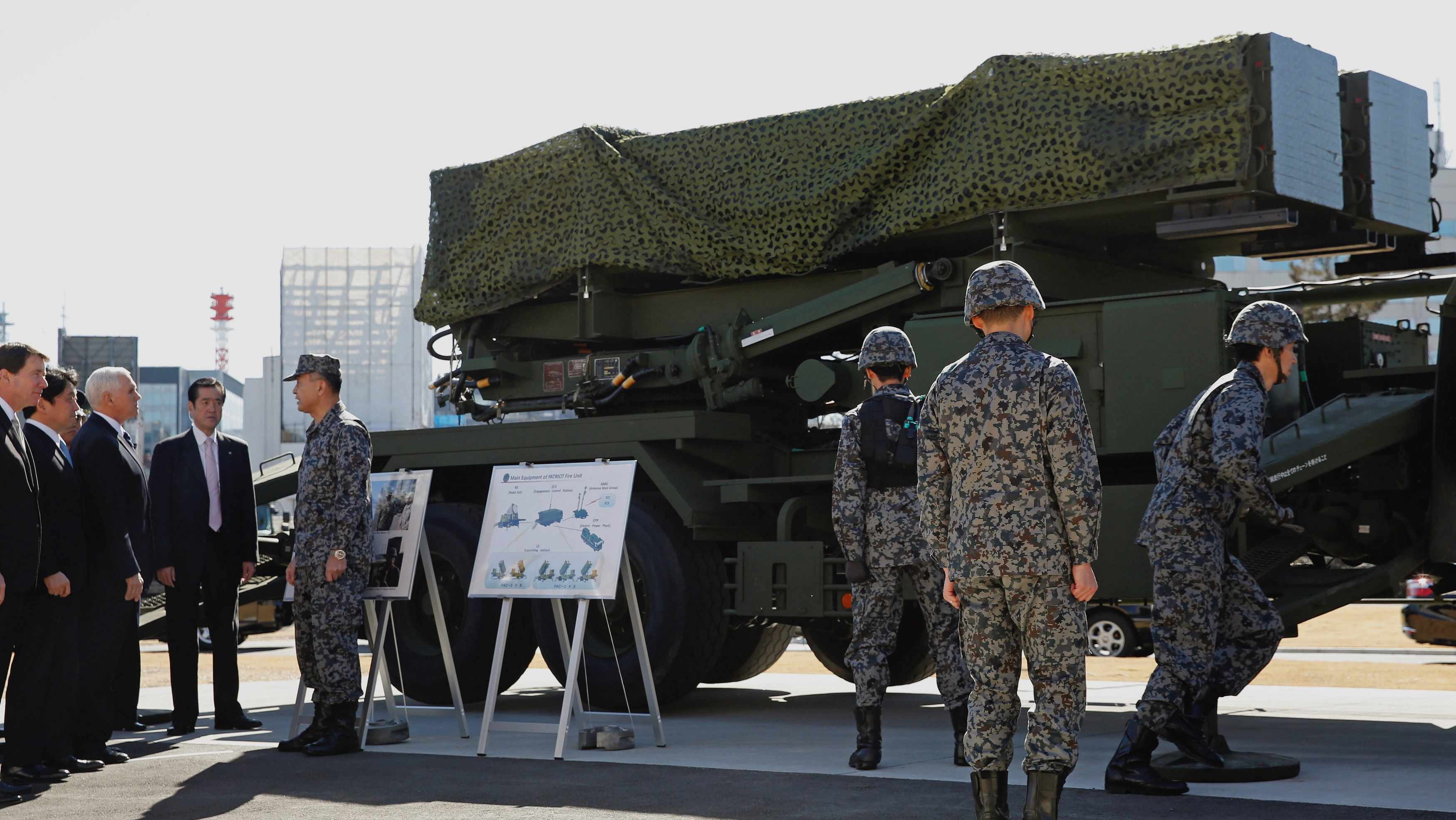
US Vice President Mike Pence inspects PAC-3 missile interceptors with Japan's
Defense Minister Itsunori Onodera at the Defense Ministry in Tokyo, Japan, February 7, 2018. /VCG Photo
US Vice President Mike Pence inspects PAC-3 missile interceptors with Japan's Defense Minister Itsunori Onodera at the Defense Ministry in Tokyo, Japan, February 7, 2018. /VCG Photo
Concern about the DPRK is pushing Japan to update its missile defense. Besides extending the range and increasing the accuracy of its Patriot system, it will add two US-made ground-based Aegis radar stations and interceptors and plans to add to its arsenal air-fired cruise missiles that can strike DPRK missile sites.
Pence is also scheduled to meet Japanese Finance Minister Taro Aso, who doubles as deputy premier and is Pence's counterpart in economic talks, although trade friction is expected to take a backseat to security during his visit.
(With inputs from agencies)
2104km

SITEMAP
Copyright © 2018 CGTN. Beijing ICP prepared NO.16065310-3
Copyright © 2018 CGTN. Beijing ICP prepared NO.16065310-3